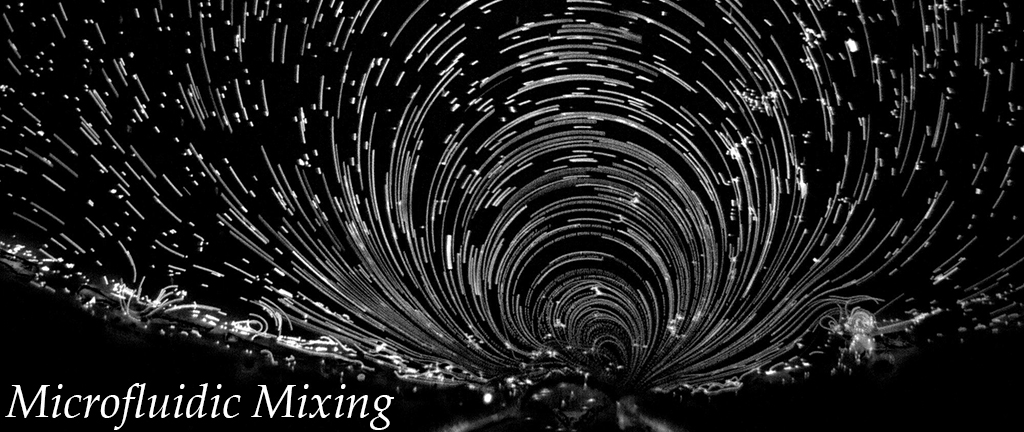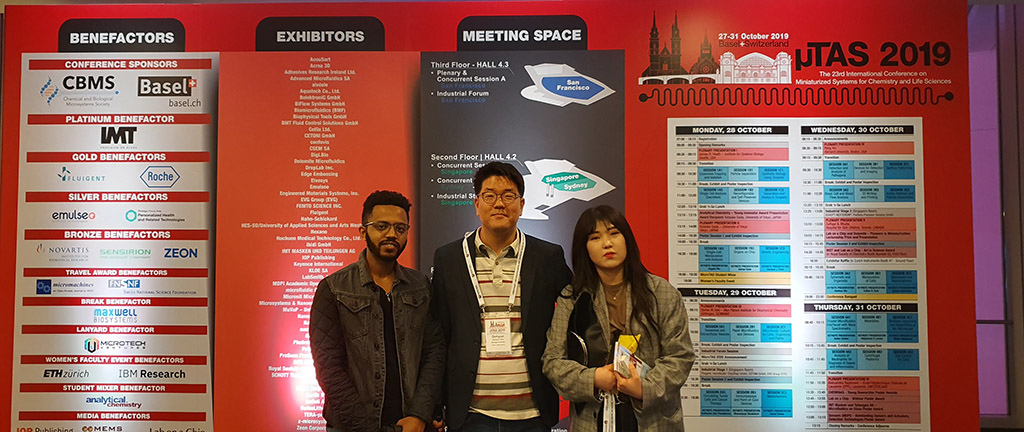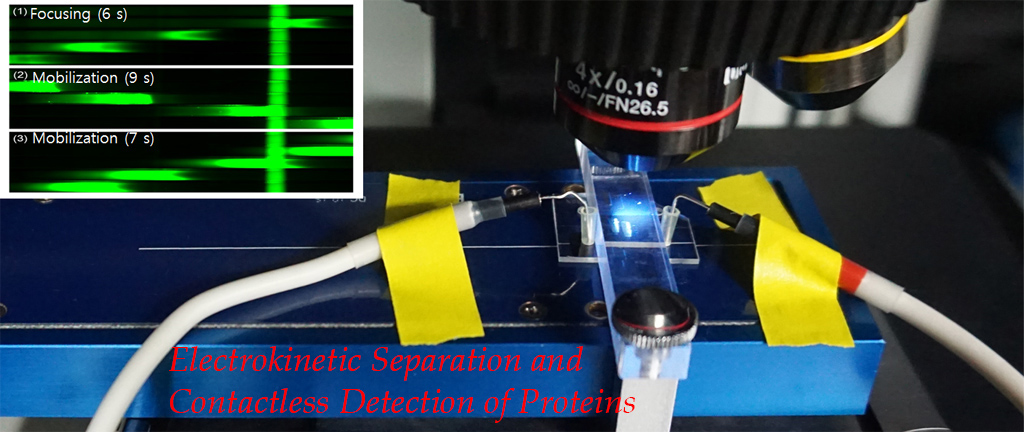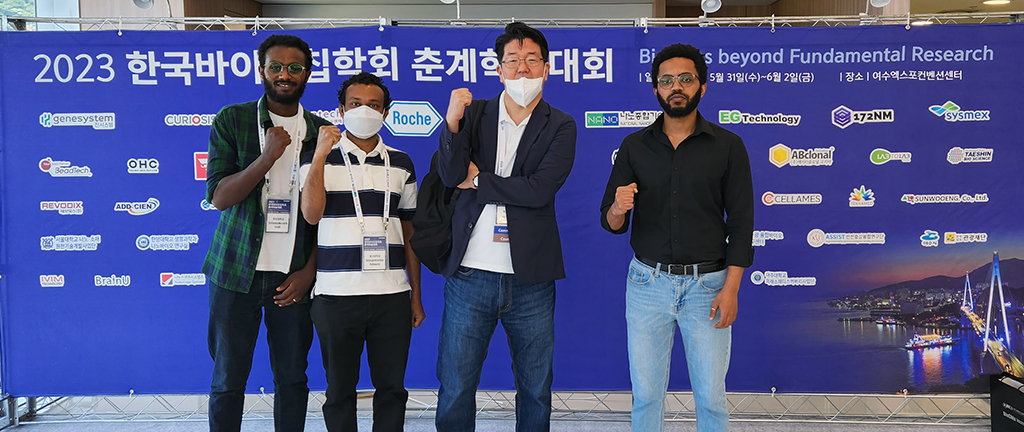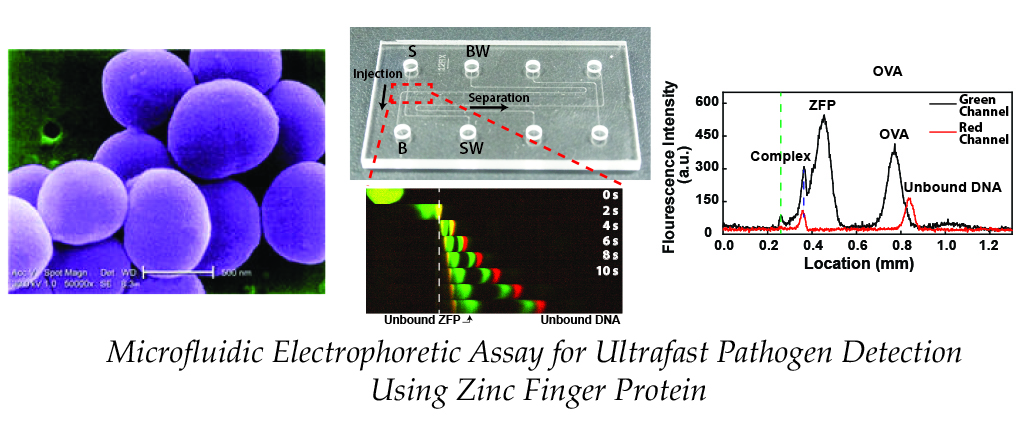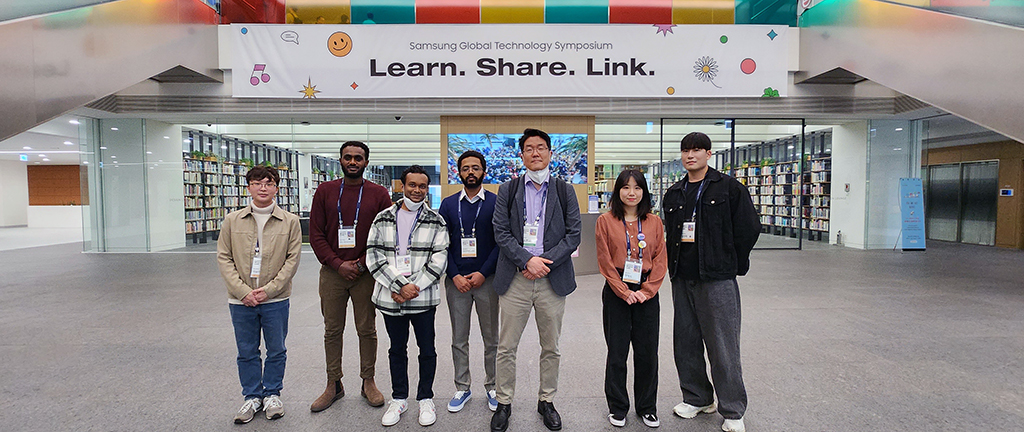Welcome to BNML (BioNanofluidics and Microfluidics Laboratory)
Graduate Student Position Available (대학원생 모집)
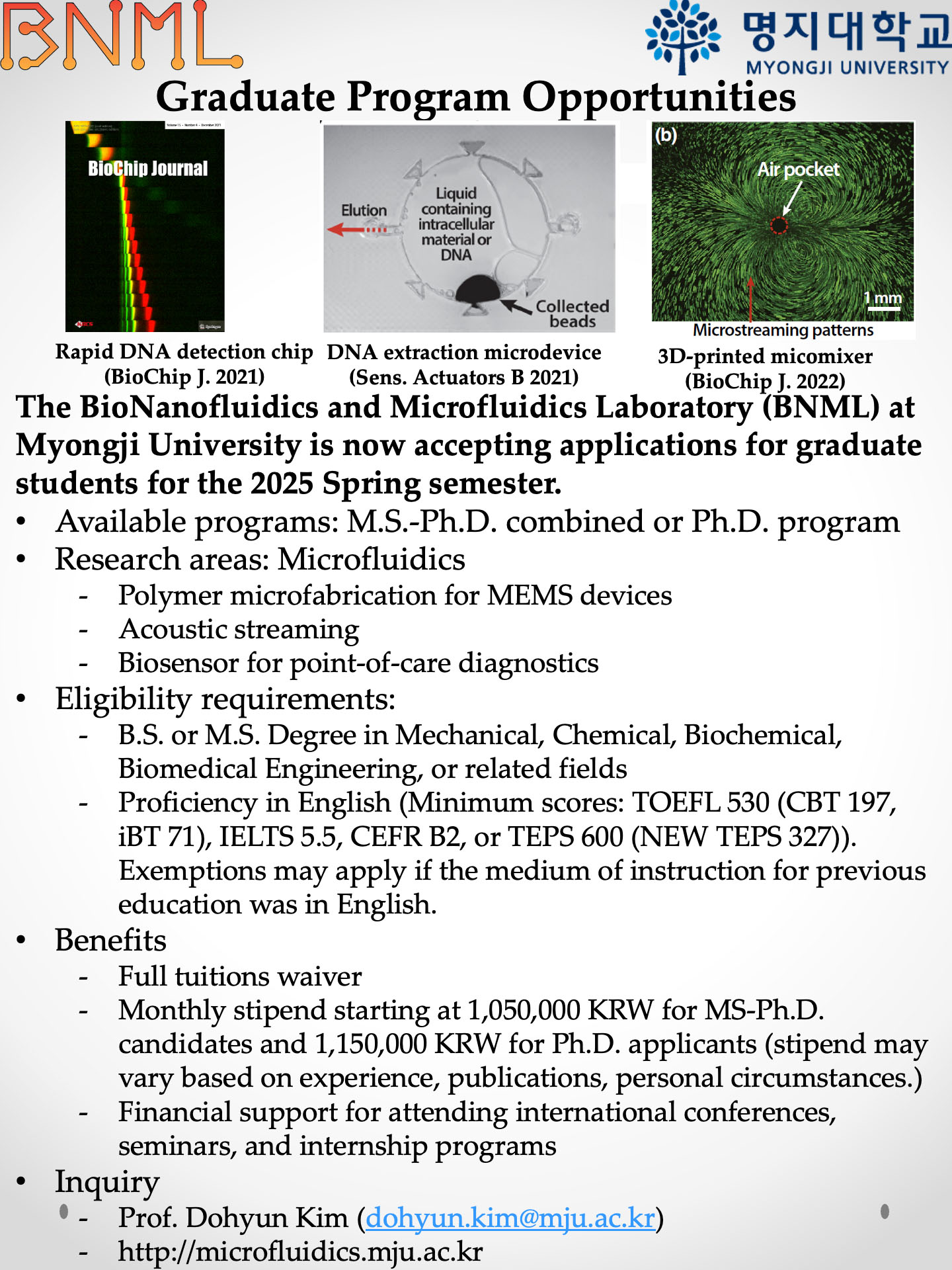
Postdoctoral Position(s) Available (포스트닥터 모집)
The BNML (BioNanofluidics and Microfluidics Laboratory, https://microfluidics.mju.ac.kr) at Myongji University, South Korea is currently hiring a postdoctoral scholar. BNML's research interest include (1) electrokinetic and ultrasonic microfluidics, (2) their applications in protein/nucleic acid analysis, and (3) polymer microfabrication technologies.1. Qualification
To qualify for this position, candidates must hold a Ph.D. degree in physics, electrical, mechanical, bio, or chemical engineering. Additionally, a solid background in optics and optofluidics is required. Preference will be given to those with experience in light-sheet fluorescence microscopy (LSFM) and setting up an optical bench with a laser. Fluency in either Korean or English is necessary, and official English test scores (TOEFL, IELTS, etc.) must be submitted if the medium of instruction in the candidate's graduate institutions is not English.
2. Responsibility
The scholar will work on a novel digital PCR technology based on light-sheet optics. This project has been funded by the Samsung Science and Technology Foundation. The scholar will be responsible for conducting research, producing research articles, and writing project reports. The project is set to begin on September 1st, 2024.
3. Compensation
The monthly salary for this position (starting at a minimum of 2,500,000 KRW) will be determined based on the candidate's experience, publications, and research background. The salary has the potential to increase based on the employee's performance and progress. Additionally, insurance benefits will be provided, including national pension, health insurance, employment insurance, or workers' compensation insurance (depending on the employee's nationality).
4. Application
Cover letter, CV, recent publications, and academic transcripts (undergraduate and graduate) should be sent to Prof. Dohyun Kim (dohyun.kim@mju.ac.kr) with the subject "Postdoctoral Scholar Application."

Hot News (뉴스)
BNML receives 2-year TIPS (Tech Incubator Program For Startup) grant from Ministry of Small Buseiness and Startups. The BNML will work with a start-up company LTIS (우리 연구실이 중소기업벤처부에서 2년간 TIPS과제로 연구비를 지원받게 되었습니다.)

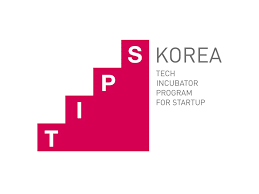

Yeji and Dohyun receives an award from 2024 Nano Young Challenge with their research titled "나노벌룬 공압구동기 어레이를 이용한 고성능 고신뢰성 음향유동 미세교반기 연구". (우리 연구실 소속 대학원생 양예지, 학부생 박도현 학생이 2024 나노영챌린지에서 장려상을 수상하였습니다.)


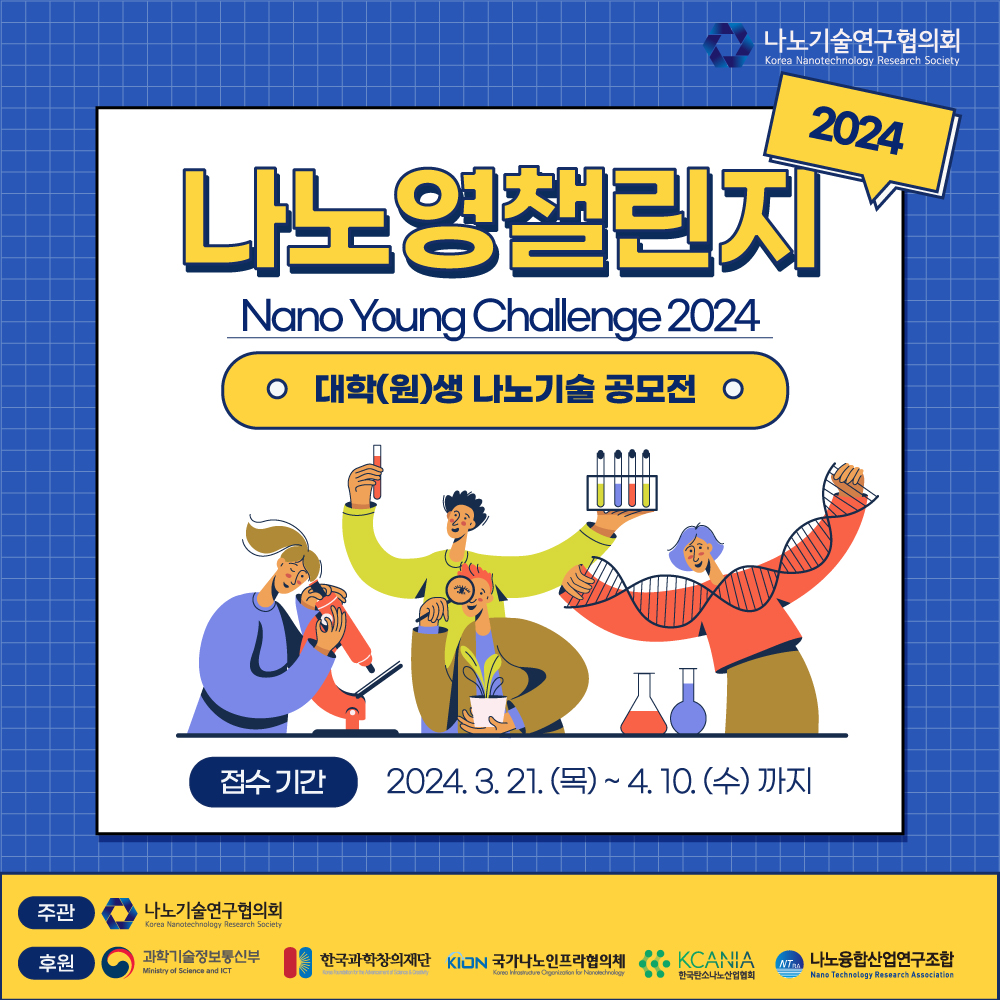
Seungmin is elected as a member of YEHS (Young Engineer Honor Society) at NAKE (The National Academy of Engineering of Korea). (우리 연구실 소속 학부연구생 이승민 학생이 한국공학한림원의 젊은공학자 Honor Society 회원으로 뽑혔습니다).
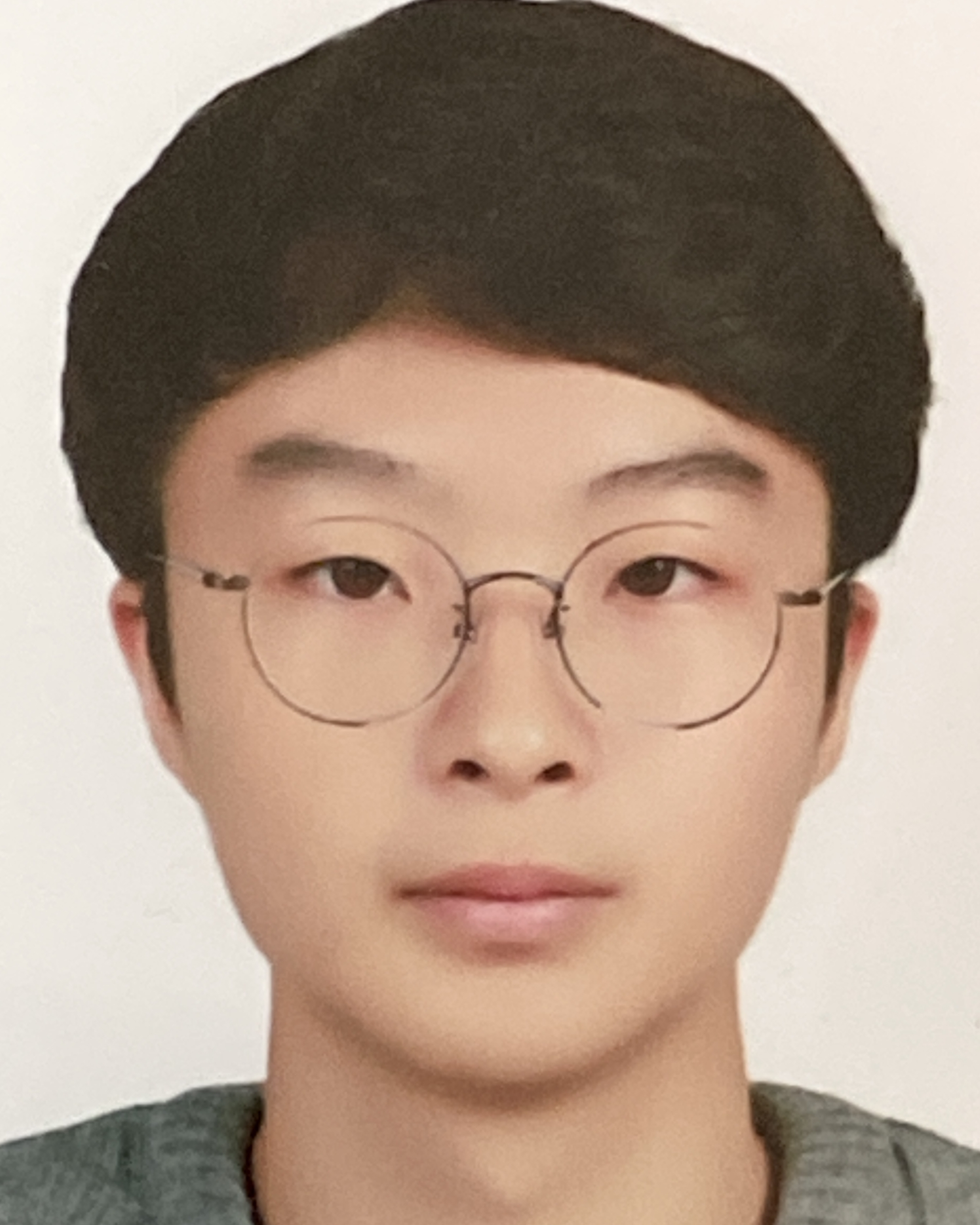

BNML is presenting two papers on MicroTAS 2024 conference at Montreal, Canada: "FLUIDICS-FREE GEL-GRID DIGITAL PCR" by Dr. Pullagura and coauthors and "ROBUST ACOUSTOFLUIDIC MICROMIXER BASED ON AN ULTRATHIN PDMS MICROBALLOON OSCILLATOR" by Yeji and coauthors. (우리 연구실이 미소유체 분야 최고 권위의 학회 MicroTAS 2024 국제학회에서 논문을 2편 발표하게 되었습니다.)

Dr. Akhtar receives a best poster award in the BioChip 2024 Spring Conference with the paper titled "UV laser-based light-sheet photolithography system for the gel-grid-based digital assays". (포스트닥인 소피아 아크타르 박사님이 2024년도 바이오칩학회 춘계 학술대회에서 최우수포스터상을 수상하였습니다.)
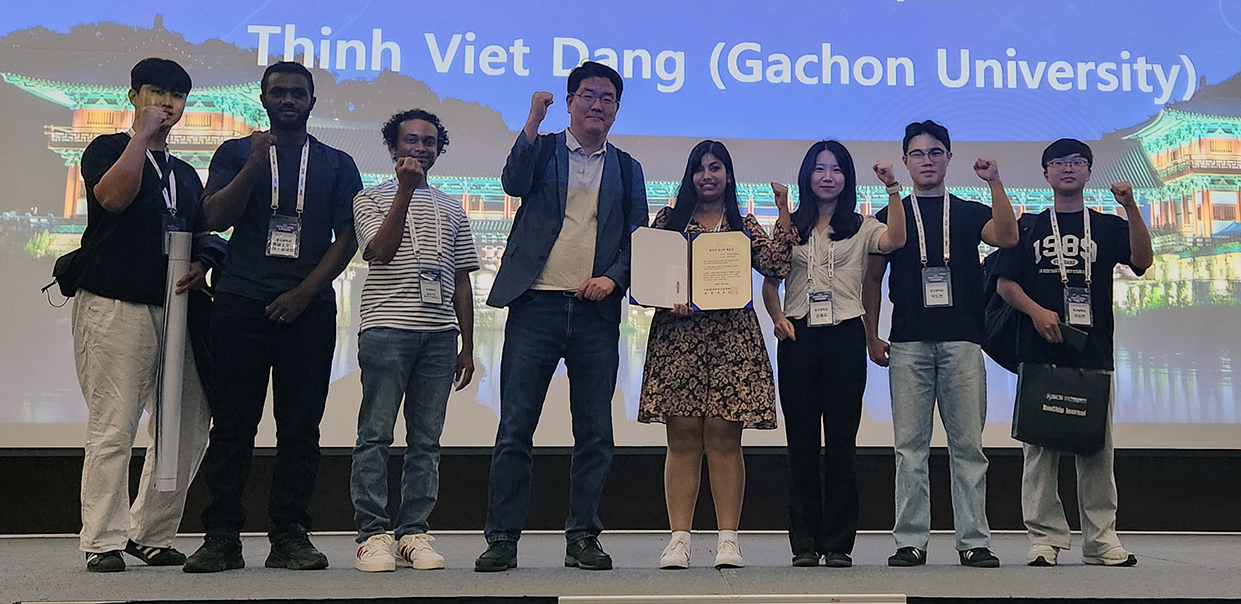
Yeji, the Master's student in the BNML, receives a prestigious "Master's Student Scholarship" from the National Research Foundation. (석사과정 양예지 학생이 연구재단에서 지원하는 석사과정생연구장려금지원사업에 선정되었습니다. 축하합니다.)


Our Research Themes (연구주제)
Our lab is mainly interested in (1) a microfluidic/nanofluidic device, virtually a network of micro/nanoscale fluidic components, and (2) application of microfluidic and nanofluidic device to analyze biomolecules such as proteins, peptide, RNA, and DNA, which are crucial in assessing physiological state of a human. We are also working on (3) individual microscale fluidic components including a micropump, microvalve, micromixer, and microscale dialyzer, (4) novel microfabrication techniques such as micro 3D printing, laser machining, and hot embossing for plastic-based microfluidic/nanofluidic devices. Lastly, we are keen to explore (5) interesting micro/nanoscale physicochemical phenomena that are not observable in conventional macroscale fluidic systems including electrokinetics and microscale heat transfer. Ultimately, we are pursuing microanalytical systems or lab-on-a-chip (LOC) that can determine clinically and biologically essential biomolecules accurately, rapidly, and reliably - so that they can replace bulky, expensive, material-consuming, but essential analytical instruments in research or clinical laboratory.
우리 연구실은 (1) 마이크로스케일의 유체기계 네트워크로 구성된 미소유체/나노유체 디바이스의 설계 및 제작, (2) 사람의 건강상태를 진단할 수 있는 단백질, 펩티드, DNA, RNA 등 생체분자를 분석하는데 있어서 미소유체/나노유체 디바이스의 응용분야, (3) 마이크로 펌프, 마이크로 밸브, 마이크로믹서, 마이크로투석기 등 다양한 마이크로스케일의 유체기계의 설계 및 제작, (4) 3D 프린팅, 레이저머시닝, 핫임보싱과 같은 플라스틱 기반의 첨단 마이크로가공기술에 주로 관심을 가지고 다양한 연구를 수행하고 있습니다. 또한 일반적인 스케일에서는 관찰할 수 없으나 마이크로스케일에서 관찰가능한 물리화학적 현상 예를 들어 전현상, 마이크로열전달 현상 등에 대한 연구도 같이 수행하고 있습니다. 궁극적으로는 이러한 요소기술을 기반으로 의학적으로 혹은 생물학적으로 중요한 생체분자를 정확, 신속, 안정적으로 검출할 수 있는 마이크로 스케일의 분석기기, 즉 랩온어칩(LOC)을 개발하여 현재 의학, 생물학, 약학, 생화학 등 다양한 분야에서 사용되는 고가의 부피가 크고 많은 시료를 소비하는 기존의 분석장비를 대체하고자 합니다.
Where is the BNML located?
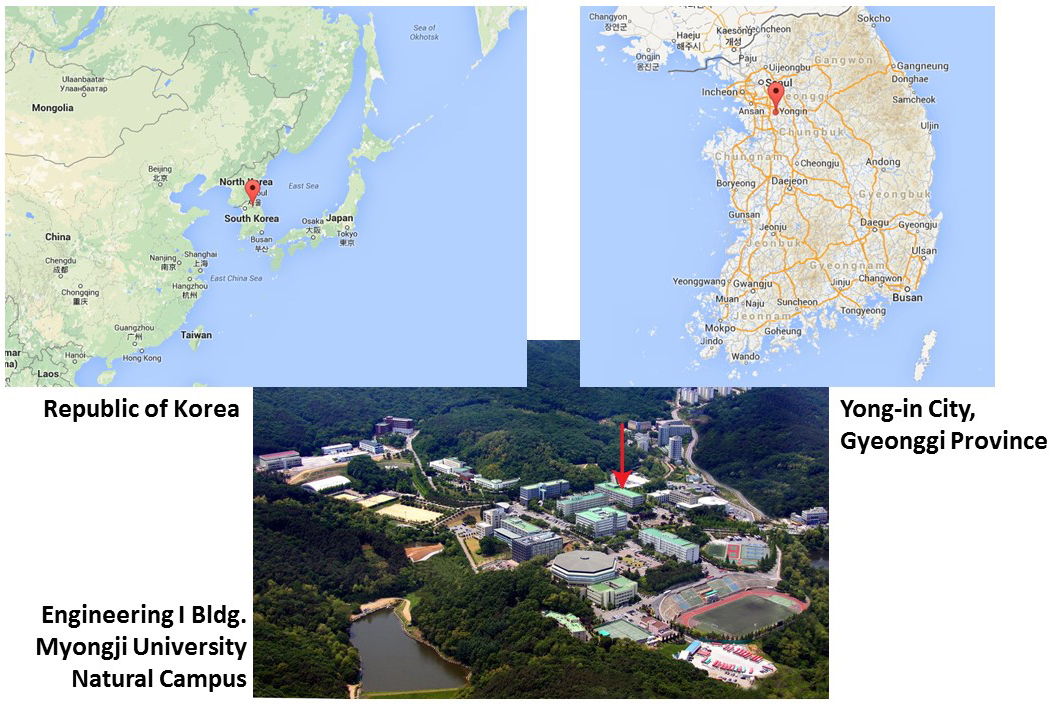
Department of Mechanical Engineering, Myongji University
#237 Engineering I
116 Myongji-ro, Cheoin-gu, Yongin
Gyeonggi-do 17058
South Korea
Tel: (+82) 31-339-1425


